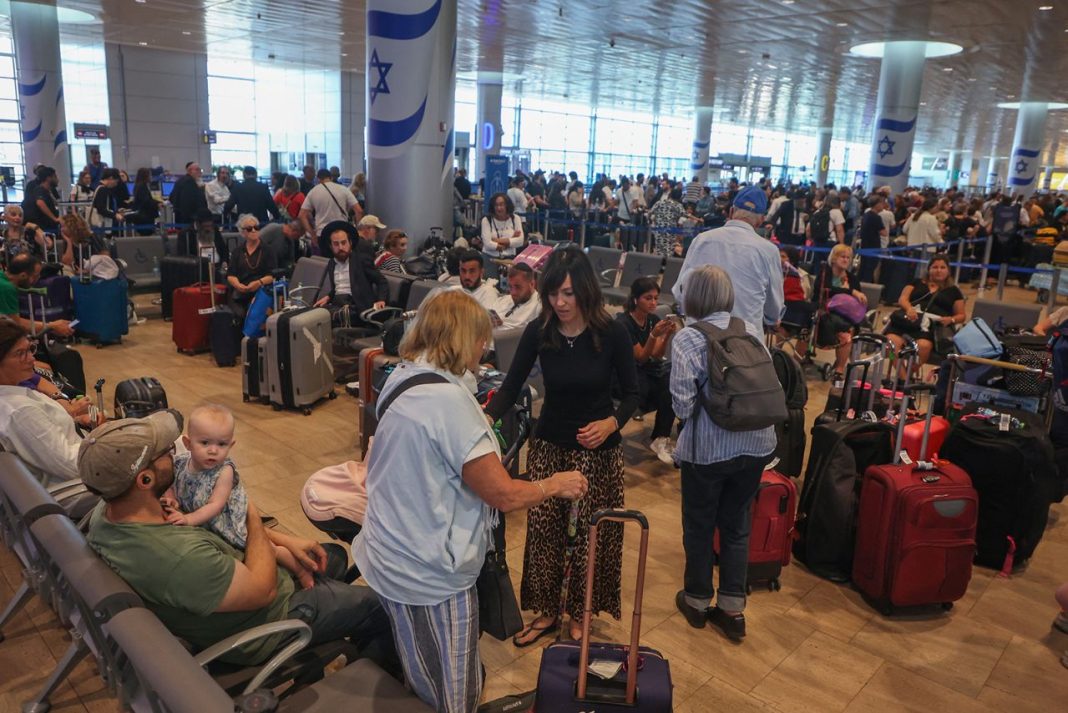Israel’s largest labor union, known as Histadrut, has threatened to shut down the “entire” economy, with its chairman Arnon Bar-David warning on Sunday that Israel was “in a downward spiral, and we don’t stop receiving body bags”.
Tel Aviv’s Ben Gurion International Airport confirmed that it will halt departures and arrivals of flights for two hours from 8 a.m. (1 a.m. ET).
The general strike, which began Monday morning, reflects growing anger toward Netanyahu – who has been accused by critics of stalling efforts for a deal by some hostage families and their supporters.
It aims to put pressure on the government to secure an agreement that would ensure the return of more than 100 hostages, including 35 believed to be dead, being held in Gaza. The vast majority of those hostages were taken during Hamas’ October 7 attack on Israel, when some 1,200 people were killed and nearly 250 taken captive.
Tens of thousands of Israelis took to the streets in multiple cities on Sunday in one of the biggest nationwide protests since the outbreak of Israel’s war on the besieged strip.
Supporters have vowed a national response, and some protesters returned to the streets in Tel Aviv Monday morning, blocking a major avenue.
Three of the six hostages found dead, including Israeli-American Hersh Goldberg-Polin, had been expected to be released in an eventual ceasefire. Israel announced the recovery of their bodies from an underground tunnel in Rafah on Sunday. The discovery of the six hostage bodies has thrown negotiations for a ceasefire and hostage agreement into question.
As well as an impact on flights, some Israeli municipalities have said they’ll join the strike, including Tel Aviv and Haifa, according to a list from the Histadrut outlining who has joined the action as well as statements from some of the cities.
The list also includes government ministries that impact a wide range of public services, the document shows, including parts of the Prime Minister’s Office, the Interior Ministry, and others.
Hospitals and healthcare facilities could also be impacted, with both working on a weekend schedule and on an emergency basis, according to the statement.
Israel’s teachers union has announced it will not join the strike, according to a statement from the union, though support staff at schools will, which may impact education institutions.
However, Israel’s biggest universities will all join the strike, including the Hebrew University of Jerusalem and Tel Aviv University.
Israel’s medie also reported disruptions to light rail services in Tel Aviv and West Jerusalem as workers joined the general strike.
Tevel, the company that operates light rail services in the Tel Aviv metropolitan area, said train services will “operate in a reduced format” and that there may be disruptions and delays, according to Ynet.
In West Jerusalem, operator Cfir stated the city’s light rail system will not operate until 12pm local time (09:00 GMT) because of the strike called by Histadrut, the country’s largest labour union.
Services will return to normal once the strike ends, Cfir added.
Ahead of Monday’s strike, Israel’s far-right Finance Minister Bezalel Smotrich asked the attorney general to request urgent injunctions to prevent the planned action.
In a letter addressed to Attorney General Gali Baharav-Miara, Smotrich argued that a strike would hurt the economy during wartime and set a dangerous precedent.
A hearing is set to be held Monday morning.
